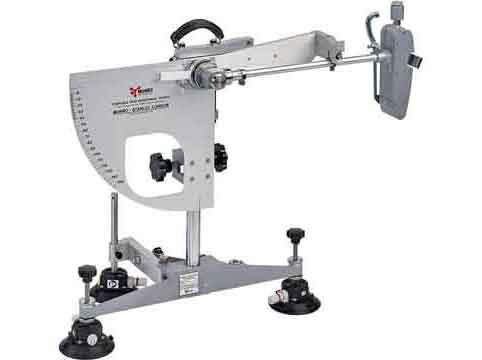Why is the Pendulum Tester the Preferred Method for Slip Testing?
Slip accidents are a leading cause of injuries in various industries, from manufacturing plants to hospitality establishments. Ensuring slip-resistant surfaces is crucial to mitigate these risks and uphold safety standards. Among the various methods available for slip testing, the pendulum tester stands out as the preferred choice for several reasons.
What is Slip Testing
Before delving into why the pendulum tester is favored, it's essential to understand the significance of slip testing. Slip resistance is a measure of how much grip a surface provides underfoot. It directly impacts safety, especially in environments prone to wetness or spills.
importance of Slip Resistance
Safety Concerns
Slip and fall accidents can result in severe injuries, ranging from fractures to head trauma. Employers have a legal obligation to maintain safe working environments, which includes ensuring slip-resistant flooring.
Legal Compliance
Regulatory bodies enforce standards related to slip resistance to prevent accidents and protect workers. Compliance with these regulations is mandatory for businesses to avoid fines and legal liabilities.
What is a Pendulum Tester?
The pendulum tester is a widely used instrument for assessing slip resistance. It operates on the principle of simulating a heel strike on a surface and measuring the energy loss due to friction.
Principle of Operation
The pendulum swings over a surface, mimicking the motion of a foot. The distance it travels after striking the surface correlates with the surface's slip resistance.
Components of a Pendulum Tester
A typical pendulum tester consists of a swinging arm with a rubber slider at its end. The arm is released from a set height, and the distance it swings is measured to determine the slip resistance.
Advantages of Pendulum Tester
Accuracy
Pendulum testers provide highly accurate results, making them reliable for assessing slip resistance across various surfaces.
Versatility
They can be used on a wide range of surfaces, including tiles, concrete, wood, and even textiles, offering versatility in testing different materials.
Reproducibility
Results obtained from pendulum tests are reproducible, ensuring consistency in measurements over time and between different testers.
Applications of Pendulum Tester
Pendulum testers find applications across various industries where slip resistance is critical for safety.
Flooring Industry
Manufacturers use pendulum testers to evaluate the slip resistance of flooring materials before they are installed in public spaces.
Manufacturing
In manufacturing plants, pendulum testing ensures that work surfaces and walkways meet safety standards to prevent workplace accidents.
Hospitality Sector
Hotels, restaurants, and other hospitality establishments use pendulum testers to assess the slip resistance of their floors and prevent guest injuries.
International Standards and Regulations
Several international standards and regulations govern slip resistance testing, providing guidelines for using pendulum testers effectively.
- Is the pendulum tester suitable for all types of surfaces?
- Yes, pendulum testers can be used on various surfaces, including tiles, concrete, wood, and textiles.
- How often should a pendulum tester be calibrated?
- It's recommended to calibrate pendulum testers regularly, following the manufacturer's guidelines, typically at least once a year.
- Can pendulum testing predict slip accidents accurately?
- While pendulum testing provides valuable data on slip resistance, it's just one aspect of a comprehensive safety strategy.

Share
Recent posts
-
What is BS 7976 Pendulum?
Posted 25th June, 2024 -
What are the Laws in the UK Regarding the Danger of Slipping in Public Places
Posted 25th June, 2024 -
What is the pendulum slip rating test?
Posted 25th June, 2024 -
What Are Floor Wear Resistance Ratings?
Posted 30th May, 2024 -
Tile/floor manufacturers? This service is for you
Posted 30th May, 2024 -
Floor Wear Assessment-Types of Flooring
Posted 30th May, 2024
